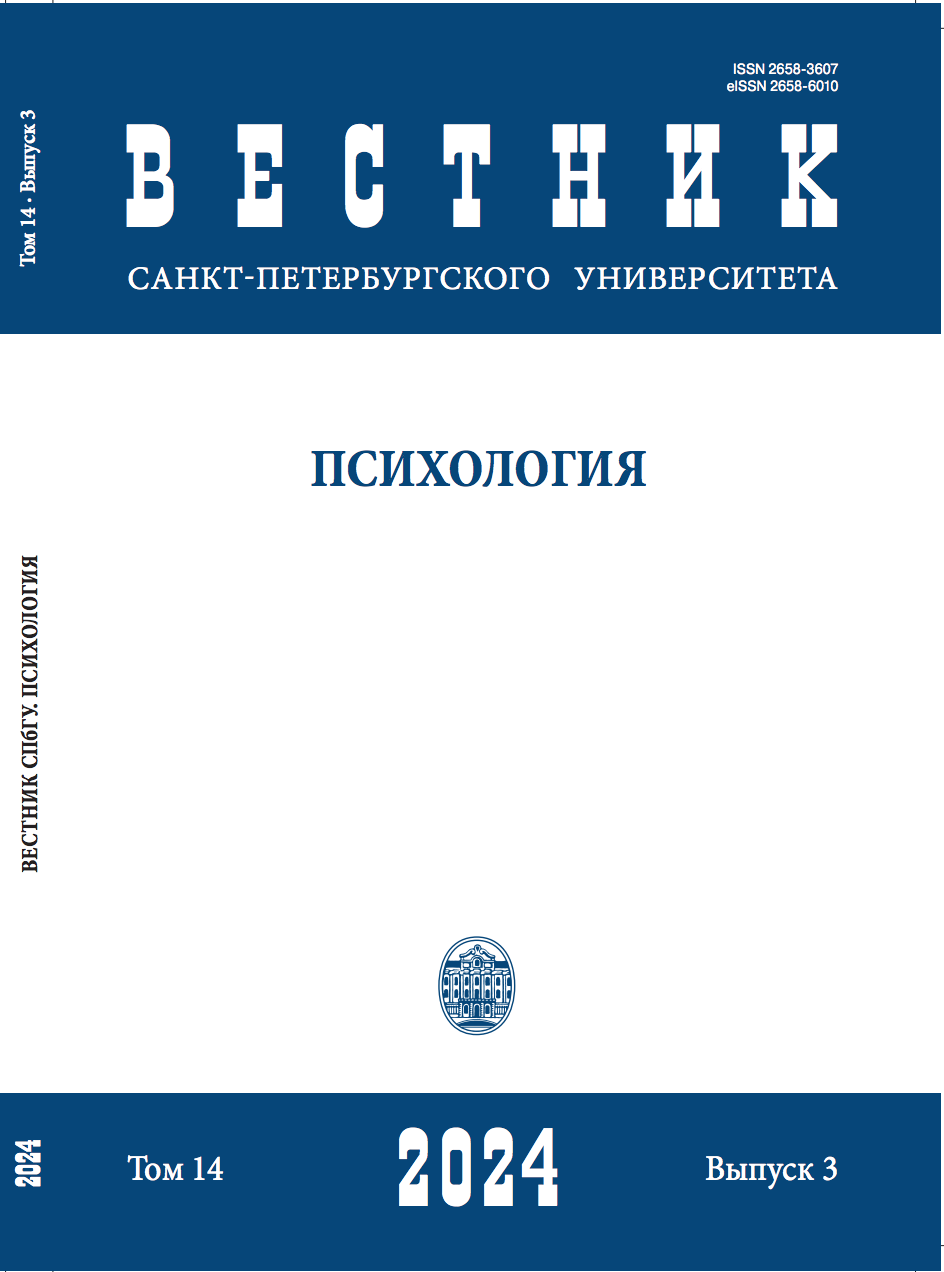Nostalgia as a psychological phenomenon: Theoretical review of the research
DOI:
https://doi.org/10.21638/spbu16.2024.304Abstract
The paper presents a theoretical review of research on the phenomenon of nostalgia — its essential characteristics, behavioural patterns; and identifies situational contexts that are most relevant to nostalgic experiences and approaches to the categorisation of nostalgia as a state and as a trait (proneness); considers the links and relations of nostalgia with various psychological constructs. Based on previous studies, a generalization of the functions of nostalgia has been carried out, among which we can emphasise both the functions common to mental states — integration, reflection, energetic, development, and specific ones — protective, anticipatory and, complementing reality. The approaches to the study of the place of nostalgia in the system of mental phenomena are analyzed: in a number of personal characteristics, in connections and relationships with cognitive functions. The article emphasizes the importance of situational context for the study of nostalgia, since the parameters of the situation can be triggers of nostalgia, actualizing its energy, protective and resource functions. The article emphasizes the importance of situational context for the study of nostalgia, since the parameters of the situation can be triggers of nostalgia, actualising its energetic, protective and resource functions. Factors mediating the effectiveness of nostalgia interventions are considered, such as personality traits (the Big Five and the Dark Triad). The specific nature of situations that evoke nostalgic experiences — the situation of isolation associated with physical, territorial or social limitations — has been identified. The conducted analysis allows us to define nostalgia as an integrative mental state, situationally determined, associated with changes in the individual’s life space, with internal experiences reflected in the person’s perception of the situation, influencing resilience and subjective well-being through a mediated relationship with individual characteristics. Despite a relatively large number of studies, the effects of nostalgia on individuals’ psychological well-being and resilience remain insufficiently understood and require further research using observational (including longitudinal) and experimental designs, and samples selected according to different criteria, particularly those in situations of isolation.
Keywords:
The results were presented at the All–Russian conference with international participation, nostalgia, nostalgic experiences, personality traits, situational approach, cognitive functions, isolation situation
Downloads
References
References
Downloads
Published
How to Cite
Issue
Section
License
Articles of "Vestnik of Saint Petersburg University. Psychology" are open access distributed under the terms of the License Agreement with Saint Petersburg State University, which permits to the authors unrestricted distribution and self-archiving free of charge.




